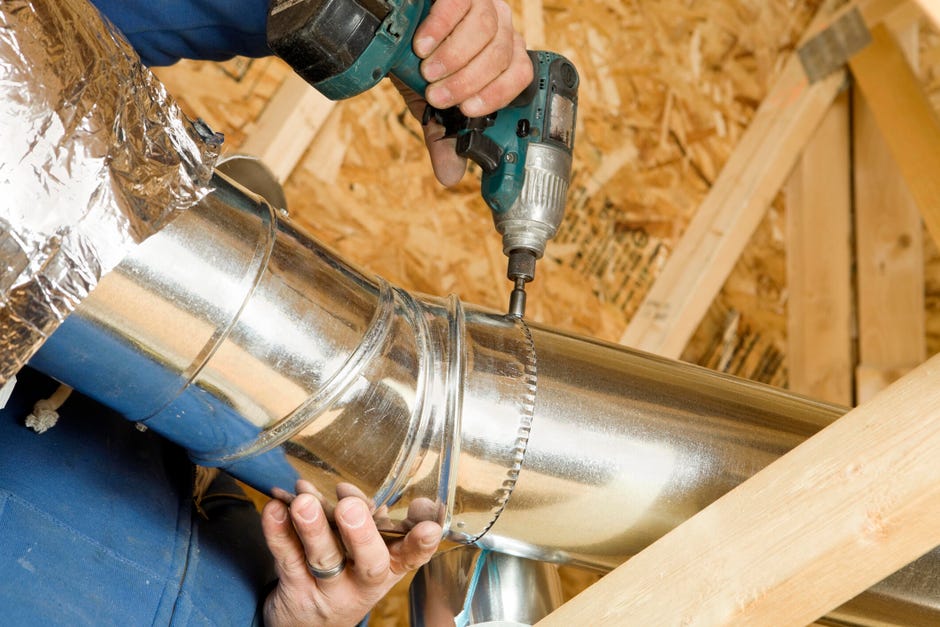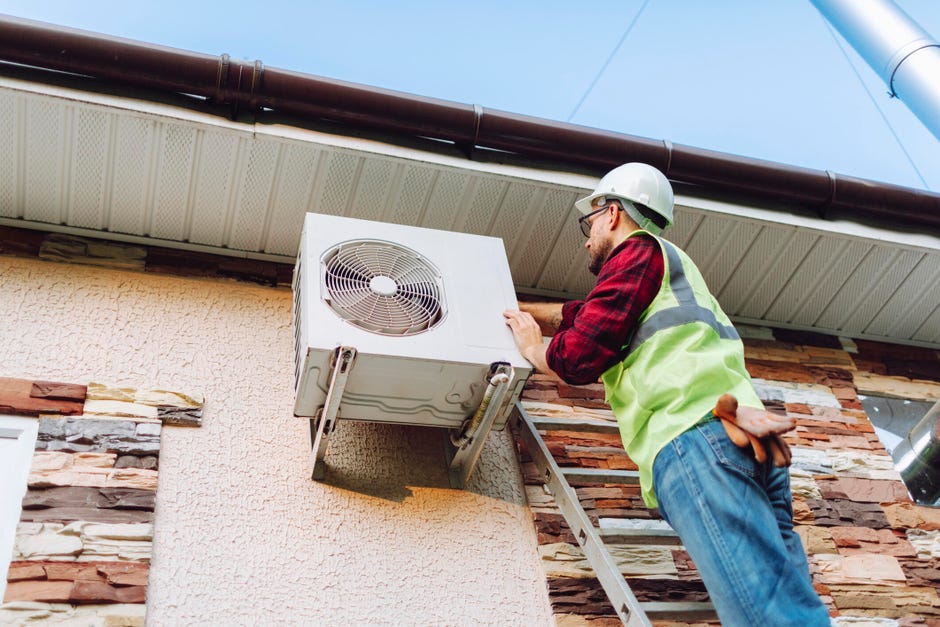
The summertime has arrived, yet if you reside in cooler regions and wish to manage your home’s climate, you may want to think about getting a heat pump. This appliance not only keeps your abode cozy during cold weather but also helps in cooling it off. By 2023, heat pumps
outsold gas furnaces
It isn’t difficult to understand why, as heat pumps function efficiently.
a better job
than
air conditioners
and they’re
more efficient
than conventional heating and cooling techniques, like
gas furnaces
At a time when
78% of Americans
are concerned about expensive electricity bills, a heat pump could potentially help reduce your costs, based on certain conditions. Regardless of your location, there exists a
heat pump for you
.
Brooke Greenwood, who leads product management at Carrier—a company that manufactures heat pumps—mentioned that these devices represent significant improvements in technology and function more efficiently, explaining their growing popularity.
Although heat pumps are gaining traction within the HVAC sector, many U.S. homeowners remain unfamiliar with this technology. As reported by
2024 survey
According to a PDF from Mitsubishi Electric Trane HVAC US, merely 44% of homeowners possess a comprehensive understanding of heat pumps, with 27% either having no prior exposure to these systems or lacking insight into their operation. This lack of comprehension underscores the necessity for increased public awareness and educational efforts concerning the advantages of heat pumps.
However, are heat pumps really as effective as advertised? Or do they have significant drawbacks that homeowners should be aware of? Here’s all you need to understand regarding these devices.
Best Portable Air Conditioners:
See at newsinpo.space
Is there an issue with concealed expenses when installing a heat pump?
From your cable bill to your cellphone contract or even purchasing a vehicle, we’re all familiar with those “too good to be true” offers that come with unexpected hidden fees down the line.
Although hidden costs may not be present, several factors can influence the expense associated with installing a heat pump.
It tends to be quite simple,” Greenwood stated. “There aren’t actually any concealed fees. However, there are several points you should keep in mind.
New ductwork
Not all heat pumps necessitate new ductwork or modifications to your current home setup. Typically, as Greenwood mentioned, “heat pumps utilize the existing ducts and simply replace the AC unit.”
However, there are certain exceptions.

For example, extremely aged houses — particularly those located in the Northeast and South regions — might require modifications like updating ductwork or adding more electrical wiring. However, typically, if your duct system was recently installed, you ought to be good to go with a heat pump installation.
It essentially comes down to the contractor who constructed the house or set up the duct system,” Greenwood explained. “These aspects have not evolved significantly over time. Therefore, if they were executed properly initially, you should be fine.
If you lack ductwork entirely, there’s also an answer for that situation.
Greenwood stated, “Some historical houses may not include ductwork throughout the property.” However, they added, “We offer an alternative with our ductless heat pumps. These systems demand less renovation yet provide a speedy and economical method for both heating and cooling your space in such scenarios.”
Permitting
In general, Greenwood stated that most homeowners do not need any permits to switch to a heat pump.
However, each city varies, and certain regions might have distinct regulations.
If you end up needing a ductless heat pump for your home, it might be due to living in an area like a historical or protected zone where modifications come with many restrictions. Therefore, make certain to review the regulations set forth by your city officials prior to reaching any conclusions.
Improving your electrical system
The primary adjustment required for installing a heat pump usually involves upgrading your electrical system.
Greenwood frequently mentioned that switching from a gas furnace and an air conditioner to a heat pump typically necessitates upgrading your electricity supply. This involves changing the voltage from 115 volts to 230 volts. Additionally, you might need to install a bigger electrical panel or do some extra wiring work.
The positive aspect is that various federal, state, and local incentives are accessible to assist you with the upgrade. A simple method to alleviate the financial strain is through utilizing these programs.
Tax incentive for installing a new electric panel
from the IRS.
Higher electricity costs
Electricity costs can
vary dramatically
Depending on your location. As stated by a
newsinpo.spacesurvey
, 78% of Americans experience stress due to high energy bills. Therefore, if you decide to switch from a gas furnace to an electric heat pump, you should consider the variance in costs between natural gas and electricity.
Heat pumps might have higher operational expenses due to increased electricity costs when compared to the gas heating supplied by furnaces,” according to Greenwood. Additionally, your utility provider could impose a disconnect fee should you decide to terminate your gas service entirely.
In a recent discussion on Reddit
Regarding heat pumps, individuals have voiced worries about the expenses associated with transitioning to this technology. Others highlight the advantages of incorporating a solar power system to mitigate electricity costs.
Home insulation
While it’s not mandatory when getting a heat pump, Greenwood suggested enhancing insulation might play an important role in making sure your new system operates effectively. This issue can impact air conditioners, furnaces, and heat pumps equally. However, if maximizing efficiency is what you’re after, installing a heat pump presents an excellent opportunity to upgrade your home’s insulation.
Your home’s insulation plays a vital role in how hard your HVAC equipment must work to maintain a comfortable temperature.
“In an inadequately insulated house, your systems would need to work harder to keep the desired temperature compared to a well-insulated home that retains heat or cold more effectively,” Greenwood explained.
Initially released on May 19, 2025 at 4:00 a.m. Pacific Time.


